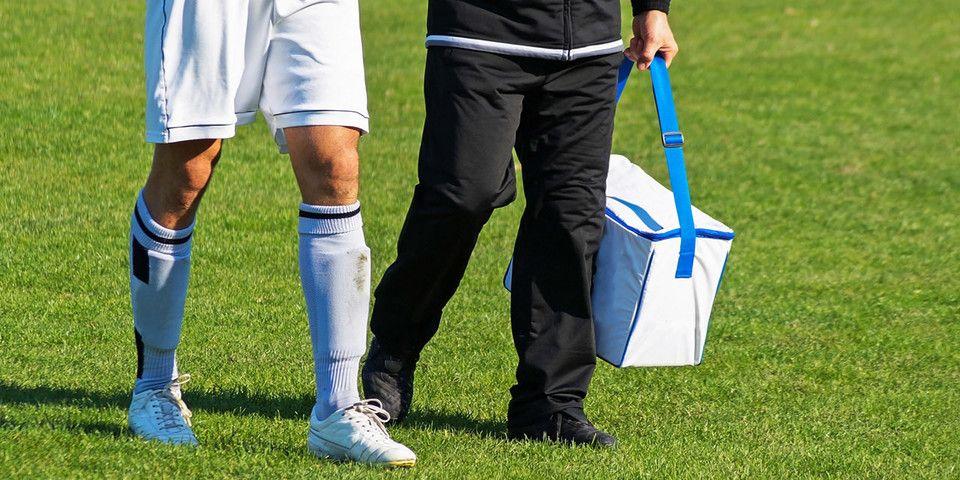7 Tips from Summer Runners for Beach Running Injury Prevention
Tips for summer runners to keep us all safe in in the summer sun!
During summer vacations, many people bring their exercise regimens with them to the beach, including running and marathon training. While running on the soft sand cushions the lower extremity joints, it can also make you prone to a number of hidden hazards. If you or someone you love is planning to run on the sand this summer, the experts at Rothman Orthopaedic Institute present the following guide for beach running injury prevention.
Beach Running Injury Prevention Guide
While many athletes are already familiar with the 10 laws of injury prevention, the following measures will help you avoid beach running-specific injuries:
1. Practice Good Self-Care.
Many runners accidentally sabotage themselves by embarking on a running routine without caring for themselves properly off of the trail as well. Help your body succeed by staying hydrated before, after, and during your run and by maintaining a high-protein and high-produce meal plan. In addition, be sure to warm up your muscles before you run and cool them down properly with stretching afterward.
2. Invest In Good Gear And Take Care Of It.
Make sure you have a full complement of quality gear in good repair and that fits you well. The ideal running shoes provide shock absorption, motion control, and stability. Monitor the wear and tear of your shoes, as routine running causes them to lose approximately 60% of their shock absorption capability after 250-500 miles of wear!
3. Choose The Right Beach.
When it comes to running, not all beaches are created equal. Certain factors can make some beaches particularly hazardous for runners, so do your research before you run to ensure your course’s:
-
Length – If a shoreline is interrupted by jetties, cliffs, river mouths, or even crowds of people, it can cause you to make hazardous pivots and turns, or even cut your run short.
-
Slant – The flatter, the better. Running on a slant for too long can contribute to strain and injury.
-
Surface – For any runner, but especially for those who go barefoot, litter, rocks, and shells can lead to injury. Make sure your beach is as smooth as possible.
4. Plan For The Weather.
It may seem obvious, but it’s important to get a complete picture of the expected conditions before embarking on a summer run. Be aware of the outlook for the day’s temperatures, precipitation, and humidity to ensure that conditions for your run are manageable. If the forecast is at all hazardous, plan to go during the coolest hours of the morning or evening, or even postpone your run for another day.
5. Set Realistic Goals.
Be reasonable about the distance and difficulty of your run. Running “too much, too fast, too soon” is one of the primary sources of training error and injury during the summer months. Customize your goals according to your particular anatomic makeup. If you have high foot arches, one leg shorter than the other, scoliosis (curvature of the spine), or excessive muscle tightness, you may be more susceptible to injury during running.
6. Run With A Friend.
The company of friends makes nearly every activity more fun, and they can make it safer as well. Having a reliable friend along on your run can help you remember your gear, plot a safe course, and alert you to hazards. In addition, if the worst should happen and you should incur an injury, a friend can assist you in getting medical attention right away.
7. Be Prepared To Turn Around.
If you run into conditions that look or feel too dangerous, don’t try to be a hero. Turn around! No recreational activity is worth losing your vacation time to being laid up with a preventable injury or worse.
What to do if you get an injury
The most common injuries incurred from running on the beach include:
Despite the best beach running injury prevention, these injuries can still occur. If you do get injured while running, your first step should be to seek medical attention right away. When you need more specialized treatment, Rothman Orthopaedic Institute can help you decide which treatment options are right for you.
Call Rothman Orthopaedic Institute today to schedule an appointment at 800-321-9999.
Related Physicians
Related Specialties
Related Programs
-

Athletic Training- Sport Medicine Outreach
Our Field Athletic Trainers provide direct sports medicine care to youth, high school, college and professional athletes. Rothman AT’s provide athletic training services throughout Southeastern PA to interscholastic high schools, colleges, as well as tournaments and special events.Read More -

Injury Prevention Program
The Injury Prevention Program at the Rothman Orthopaedic Institute is dedicated to the prevention of injuries from athletic participation, particularly youth sports.Read More -

Women’s Sports Medicine Program
The Women’s Sports Medicine Program at the Rothman Orthopaedic Institute is the first of its kind in the Philadelphia metro area and one of only several such programs specializing in the comprehensive care of the female athlete in the country.Read More




